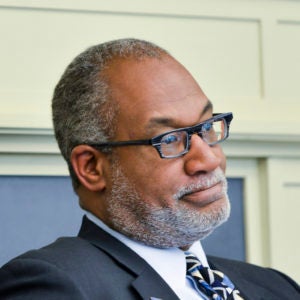
Seminar Leader:
Herman BeaversPreface:
In the current moment, African American poets enjoy a level of notoriety and visibility that testifies to how far they have come since Thomas Jefferson’s characterization of Phillis Wheatley’s poetry as being “beneath the dignity of criticism.” In the last twenty years, African American poets have begun to make annual appearances in The Best American Poetry anthology, winning several Pulitzer Prizes and National Book Awards as well (indeed, in 2002 four of the five nominees for the National Book Awards were African American poets).
To begin this seminar experience we built a base of understanding, becoming familiar with poetry’s technical aspects, and later employed strategies for interpreting poems. Our attention was not on poetry as “difficult” literature, disengaged from everyday concerns. Rather, our motivation was to make poetry relevant to how we understand African American history (e.g. slavery, the Great Migration, and racial injustice) in addition to the issues shaping family life, spirituality, gendered identities, and social consciousness. We further explored poetry’s relationship to other cultural forms such as cinema, advertising, and music.
| Unit Title | Author |
|---|
2009
|
|
|
Joyce Arnosky |
|
Keywords: 5th grade, African American, Black experience in America, History, poems, poetry, Reading, writing |
|
|
|
|
Karen L. Brinkley |
|
Keywords: afrian american literature, African American art, african american poetry, History, Literature, poetry |
|
|
|
|
Donna L. Jones |
|
Keywords: activism, african american poetry, Civil Disobedience, English 3, Imagery, Imagery in Action, literary devices, Literature, poetry |
|
|
|
|
Lisa Kelly |
|
Keywords: Beats, Bob Kaufman, consumerism, discussions, literacy, literary movement, power, race, silencing in America |
|
|
|
|
Stacia D. Parker |
|
Keywords: 1930s, characters, collaboration, conscience, courage, found poem, haiku, Harper Lee, historical background, Historical Context, odes, poetry, social injustice, social order, social responsibility, sonnet, The Black Arts Movement, The Harlem Renaissance, themes, To Kill a Mockingbird |
|
|
|
|
Samuel A. Reed, III |
|
Keywords: African American poets, Art, biography, constructive criticism, demystify poetry, figurative language, Middle School, Music, read, Reading, Research, social studies, speak, write, writing |
|
|
|
|
Deborah Samuel |
|
Keywords: active engagement, close readings, Critical thinking, English, English literature, examine, literary techniques, Literature, poetry, read, slow down |
|
|
|
|
Michael Steele-Eytle |
|
Keywords: Afro-American poets, art and music, interpretation, language acquisition, lens of Spanish Translation, listening, poetic structure, Reading, Spanish, speaking, writing |
|
|
|
|
Deanna M. Stephan |
|
Keywords: 11th grade, African-American community, American Literature, analyze current status of community, Claude McKay, Gwendolyn Brooks, historical frameworks, history of the community, Jack Myers, poetry, process observations, Reading |
|
|
